- Home
- Laura Resnick
Polterheist: An Esther Diamond Novel Page 8
Polterheist: An Esther Diamond Novel Read online
Page 8
Narrow paths in the Enchanted Forest wound between large trees with expressive faces, creepily twisted branches, and artistically twining roots (which people were always tripping over). Some of the trees’ faces were animated and programmed to speak, startling visitors by greeting them, warning them to leave the dark forest, or asking if anyone had seen Princess Crystal lately. The princess sometimes roamed the forest, looking for Prince Midnight and asking visitors if they’d seen him; at other times, he roamed the forest, looking for her.
I often encountered Crystal and Midnight there, since the Enchanted Forest was one of my regular posts. One of these trees was programmed to exchange some scripted verbal patter and sing Christmas duets with an elf. The performance lasted about twenty minutes and was scheduled to run during peak visiting periods. I usually did it at least once a day, sometimes twice.
As Rick and I wandered the Enchanted Forest, I thought that many things in this part of Solsticeland might have frightened Jonathan, but I didn’t see anything that might suggest Santa to him. Nor did I understand why that jolly image would become a menace in the boy’s mind.
“Why do you think he might be afraid of Santa images?” I asked Rick. “I mean, I talked to the kid, and he was really eager to see Santa.”
“Plenty of kids who like the idea of Santa are frightened by various physical manifestations of him,” Rick said. “Santa mythology is colorful and safe, and it leads to very attractive tangible rewards for kids: presents under the tree. All kids enjoy that.”
“No, Christian kids enjoy that,” I corrected.
“Ah! Right,” he said with a nod. “As a Jewish child, what did Santa symbolize to you? Your outsider status as a religious minority, excluded from the normative customs of your wider sociocultural matrix?”
“That was it exactly,” I said. “I was four years old the first time I told my parents that I felt excluded from the normative matrix because there were no presents under the Christmas tree that we didn’t have.”
Rick laughed. “So even though it wasn’t part of your family’s heritage, you still saw the appeal of the Santa mythology as a child?”
“Sure. Who wouldn’t?”
“Right. But encountering Santa in person can be very different from enjoying the Santa mythology. It can be a negative experience with unsettling ramifications, just the way that encountering the real-world version of any idealized fantasy can turn out to be disappointing or even disturbing.”
I thought of Elspeth Fenster’s recent disappointment upon encountering The Vampyre’s Jane Aubrey in reality. “I see your point.”
“Since these are children, who process information differently than adults do, it can even be frightening and disorienting. Sure, many kids make the transition from their fantasy of Santa to the ‘real’ thing very comfortably. But for others, visiting Santa is traumatic,” he said, as we continued poking around the Enchanted Forest with no real idea what we were looking for. “After all, the child is expected to speak with, get physically close to, and share wishes and secrets with a grown man he doesn’t know, one whose features are largely concealed by a theatrical beard and a wig. An event that was anticipated with excitement—meeting Santa—turns out to be emotionally uncomfortable or even intimidating, and the child becomes upset.”
I nodded as I thought this over. Never having visited Santa, I had no such memories to draw on from my own childhood. But while working as Santa’s helper during the past couple of weeks, I had seen any number of children become tongue-tied with shyness upon meeting Santa. And there were a few kids each day who started crying in panic or confusion when their parents put them on Santa’s lap. I had also witnessed children get cold feet at the last minute and leave without meeting Santa, after having waited in line for a half hour to see him.
I thought I also understood now why Drag Queen Santa had fewer such incidents than the other Santas. Satsy’s absurdly long, glittery, purple eyelashes (accompanied by the rest of his elaborate eye makeup and his favorite lipstick) were so unexpected, they altered the focus of the encounter. Some children were fascinated and impressed by his lashes, others were puzzled or bemused; either way, this distracted them and defused their anxiety. Above all, many children laughed about the lashes, especially if Satsy batted them playfully; and their own amusement put them at ease, so that the visit with Santa was buoyant and fun.
Thinking of Satsy also made me realize that his terrifying entrance this morning may well have created the equation in Jonathan’s mind between Santa and a scary creature. After that, although the boy hadn’t been scared of Satsy, he had been terrified of whatever he saw—or thought he saw.
“Esther?” Rick called softly to me as he peered around a trio of trees clustered at the edge of the forest, close to the cloth-covered west wall and the maintenance area beyond it. “I think we may have a winner.”
I trotted over to him and peered around the trees, too. “Hey,” I said in surprise. “I didn’t even know that was there.”
Tucked into a hollow at the back of this trio of thick tree trunks, huddling in his little cave-like shelter, was a chubby gnome, dressed in red micro-velvet with white trim. I thought the gnome was cute, but also startling, hidden from plain view as he was. It was easy to see how a young child might find him frightening. His spiky teeth were bared in a grimace (or possibly a gnomish smile), and his eyes glinted in the lantern light.
It wasn’t a portrayal of fangs and glowing eyes, but it certainly could have seemed so to a scared little boy who couldn’t find his mother. I supposed even the gnome’s little hands could seem like claws to a child on the verge of hysterics.
“So Jonathan bumped into this and mistook it for a monster Santa?” I said with a sigh.
“I think it’s the most likely explanation,” said Rick.
“Well, I can understand why it scared him, but I’m not going to suggest to Miles that it be taken off the floor. A child that young wouldn’t normally be in here without a parent, and anyone older than Jonathan probably likes this little guy.”
“I do,” said Rick. “He’s so ugly, he’s cute.”
I was about to agree with this when we were startled by someone brusquely barking, “Hey! You!”
We both turned around. The Russian elf stood looking at us. I noticed how well this dark, eerie setting suited her dour demeanor.
She gestured in the direction of the North Pole. “Black Santa wants break. Me, too. You both come now,” she said imperiously. Then she turned her back on us without waiting for a reply and stalked off.
“I am not your servant,” I muttered.
Rick started to call after her, then paused and asked me, “Do you remember her name. Is it Merry?”
“Now that would be witty irony,” I said. “I think she might be Holly. But I’m really not sure.”
“Well, either way, I guess we should hop to,” Rick said. “Considering what she’s normally like, I don’t want to find out what she’s like when she’s pissed off.”
“Agreed.”
Rick went to clock in and don his costume, then relieved Jeff—whom I instructed to spend his break keeping an eye on Satsy. (Jeff protested that I’d lost the right to boss him around when we stopped dating four years ago, but I overruled him.) I helped Candycane herd Super Santa’s visitors for a while, until Miles came along and ordered me to go promote Chérie the Chef to the afternoon crowds. (I protested that I found the doll a blatant symbol of oppression and objectification, but Miles overruled me.)
I was starving by the time I got my meal break late that afternoon. While I was finishing the microwaved supper that I had brought to work with me, Satsy came into the break room, wearing his replacement outfit and fresh makeup. He looked ready to make children smile and laugh.
“That costume’s not a bad fit, is it?” I said.
“Yes, it works—though I really don’t care for these broad cuffs,” he replied. “They’re so last season. But it’ll do. I’ve only got a couple of mor
e shifts, after all.”
“Do you feel ready to go back to work?” I asked.
He nodded. “I’ll take over for Rick or Jeff. Whichever one of them needs to leave first.”
I looked at the clock. “I’ve got to get back out on the floor. I’m supposed to do the next scheduled set with the singing tree.” The program was due to start running in a few minutes. I put on my hat-and-ears, left the staff area, and headed over to the Enchanted Forest.
We were approaching the peak hours for business, and Solsticeland was packed with people. I had to squeeze through a seething throng of families in the North Pole and then elbow my way through the multitudes of meandering teens and adults in the spooky forest of fake trees. When I reached my destination, I felt a little disheveled, so I straightened my outfit while waiting for the program to start.
Right on time, the tree spoke to me, bidding me good evening. I expressed surprise, with suitably melodramatic gestures, at being addressed by a plant. The tree’s lumpy face contorted in various animated expressions while it explained to me that I was in the Enchanted Forest, where anything was possible. Some visitors who were passing this spot paused and stopped to watch the performance. Others joined them as the tree and I progressed through a short scripted routine about Santa’s reindeer, mixing up their various names and inviting the children in the crowd to correct us.
After a few minutes of this, the tree suggested we have a merry song, and it launched into a duet with me, accompanied by the music coming through its sound system. We sang “It’s Beginning To Look A Lot Like Christmas,” after which we exchanged a little more patter. Then we sang “Jingle Bells,” “It Came Upon A Midnight Clear,” and “Here Comes Santa Claus.”
At the end of that song, I asked for a show of hands. “Who’s been to visit Santa already?” Then: “And who’s on their way to visit Santa now?” I gave brief instructions for joining the line to see Santa, and then I talked about the other exciting attractions here in Solsticeland, urging all my new friends not to go home without seeing these wonders.
While chattering away, I saw Twinkle trying to make his way through the crowd, somewhat hampered by his accordion. Glancing in the other direction, I noticed a couple of security guards hovering just beyond the gathered crowd. They were speaking with an authoritative-looking woman who seemed to be all business. The guards were an unusual sight on this floor, in my experience, so I wondered if Jonathan’s mother had filed a complaint about this morning.
Coming to the end of my spiel about the multicultural exhibits here in Solsticeland, I turned back to my arboreal companion and suggested we give these nice people one last song.
The tree did not respond. It sat there, silent and inert. I wondered if I had unwittingly rushed through my speech and finished too early. I ad-libbed a little, to fill the silence. Still no response from the tree.
“Oh, dear,” I said to the crowd. “My friend may have fallen asleep while I was talking!”
Some of them chuckled at that. I was wondering by now if the tree’s complex mechanism had broken down. If the thing had stopped working, I’d have to wrap up the performance without it. I glanced around and saw that Twinkle was still within sight, the density of the crowd ensuring that his progress remained slow.
I gave the tree an admonishing poke as I said loudly, “If you won’t sing another song with me, then I’ll just ask my friend Twinkle to play something for me!”
And that was when all hell broke loose.
The tree came to sudden, menacing life. Its eyes glowed red, its knobbly face contorted into a snarl, and it growled at me. Startled, I gasped and fell back a step. I heard some of the crowd laughing, assuming that this was part of the show. The Enchanted Forest was, after all, a deliberately spooky setting where, as the tree had already said, anything could happen.
And that certainly seemed to be true as the tree’s glowing eyes focused on me while it whispered in a harsh croak, “Kill . . . kill . . . kill you.”
6
I choked out a scream and staggered backward. We were way off script now.
A big, solid tree branch hit me hard from behind, knocking the wind out of me and sending me sprawling forward into the tree’s face. The branch was one of the mechanical arms which were programmed to wave and bounce in time to the Christmas carols that the tree sang. It swiftly wrapped around me and held me pressed up against the horrifyingly animated trunk, which snickered at me as I was shoved against it.
The blow had stunned me, but I was so frightened that adrenaline flooded my system, working wonders. I quickly regained my senses, took a noisy gulp of air, and started screaming my head off.
This set off a chain reaction of gasping and shrieking among the gathered crowd, who by now realized something was wrong.
The tree’s mouth, already stretched in a vicious snarl, sprouted long yellow fangs. I didn’t want to find out if they were as sharp as they looked, so I struggled with all my might against the dense synthetic branch that was trying to force me closer to that mouth.
“No, no, noooo!” I was screaming.
“Dreidel!” Twinkle shouted. “Dreidel!”
I heard the mad, musical screech of his accordion as he wrestled his way through the crowd, hollering frantically for maintenance, for help, for security, for someone!
With my arms trapped by the encircling branch, I lifted my feet and braced them against the tree trunk, fighting the mechanical branch’s effort to drag me closer to the snarling, fanged mouth. I was panting hard with fear and exertion, struggling for air as the thick, twining branch tightened around me like a python, bruising my arms and squeezing breath from my body.
Some shoppers grabbed frantically at the branch and tugged on it, trying to release me. Another animated branch swooped down and knocked them away, throwing them into the crowd with industrial strength and power. I heard more screaming and, out of the corner of my eye, could see people falling and tumbling.
“Nooo!” My voice was thin and shrill. I was starting to feel lightheaded.
More people approached the tree, trying to help me. Through the blur of my misting vision, as I fought my terrifying captor and gasped for air, I could see elf outfits, reindeer antlers, the bright red of a Santa suit . . . two Santa suits . . .
“Esther!” Jeff shouted, bounding toward me.
Pow! A long tree branch whipped through the air like a catapult, knocking Jeff off his feet. He flew backward into Satsy, and the two of them tumbled out of my fading vision.
“Cut the power!” a man shouted.
I heard the ear-piercing squeal of children screaming and the heavy thunder of feet stampeding.
“Cut the power!” the same voice repeated.
A huge man in a parka hurled himself at the tree, screaming, “Yaaaagggh!”
Two snakishly animated branches scooped him up, working in unison, and tossed him aside like a rag doll.
The tree’s menacing mouth started drooling, and I recoiled from the foul odor that started to pour out that orifice.
“Help!” I croaked, dizzy and weak by now. My bells jangled as I kicked ineffectually at the trunk with my dainty boots.
“Dreidel! I’ll save you!” Twinkle cried.
I kept kicking weakly as the encircling branch that was squeezing the life out of me forced me closer to that foul-smelling, drooling, snarling mouth.
“What are you doing?” a man shouted. It was the man who wanted the power cut—as if electricity were the problem here.
“I’m saving her!” Twinkle cried.
Through my swimming vision, I saw the elf wave an ax near my head, and I found the breath to shriek, “No!”
“Give me that!” the same man shouted, his voice starting to sound familiar through the haze of my suffocation and terror . . .
The tree’s animated eyes glowed red while it growled softly to me, “Kill . . . kill . . . I want flesh! And blood.”
I hoped I would faint before this thing took a bite out of me. I
didn’t want to be conscious for that.
There was a sudden, powerful reek of sulfur. Black smoke clouded the glowing red eyes; one of the orbs cracked, and pieces of plastic fell to the floor. The drool pouring from the fangs seemed to freeze in mid-motion. The whole tree went rigidly still. Sensing my opportunity, I tried again to free myself. But I was weak, and the python-like branch, though motionless now, wouldn’t release me. It was frozen in position, as if it had mechanically seized-up.
Then I heard a loud whack! nearby, like an ax hitting wood—and the oppressive branch dropped me like a hot rock. Startled, I staggered away dizzily, tripped over the synthetic tree roots, and hit the floor with a thud.
As I lay there on my back, panting and staring up at the star-studded solstice sky, I heard footsteps. Then that familiar voice said: “Esther?”
I didn’t answer. Just lay there. Breathing hard and savoring the feel of air in my lungs.
“Esther.” Holding a big wood-handled ax, Detective Connor Lopez of the New York Police Department stood looking down at me. He was breathing fast. “Of course. I should have guessed. I mean, who else could it be?”
“Lopez?” I croaked, looking up at him in bewildered surprise.
“Are you all right?” he asked. “Do you need a medic?”
“Why are you holding an ax over my head?”
He looked at the ax as if surprised to see it in his hands. “Oh. I used it to sever the power cable to that . . . that thing. What is that thing?”
Still, breathing hard, I gaped at him in amazement. “Wow. The slogan is true. At Christmas, everyone comes to Fenster’s.”
“Actually—”
“Dreidel!” Twinkle was at my side, his accordion still strapped to his torso. It groaned noisily as he sank to his knees. “Are you all right?”
“I thought you were going to behead me,” I panted, recalling the sight of Twinkle waving the ax near me.
“No, I was saving you! I was attacking the tree!”

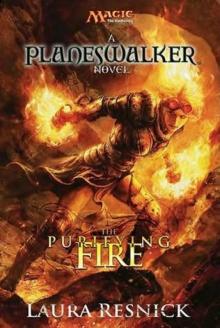 The Purifying Fire p-2
The Purifying Fire p-2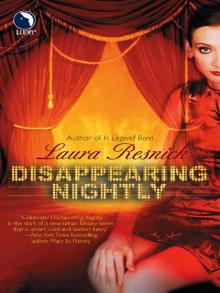 Disappearing Nightly
Disappearing Nightly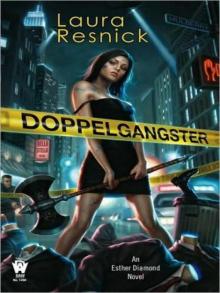 Doppelgangster
Doppelgangster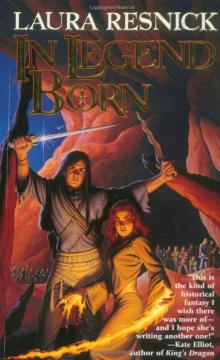 In Legend Born
In Legend Born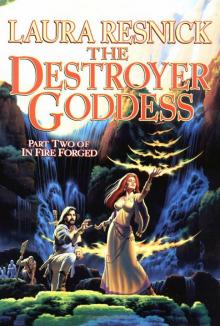 The Destroyer Goddess
The Destroyer Goddess The Purifying Fire: A Planeswalker Novel
The Purifying Fire: A Planeswalker Novel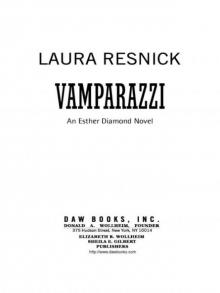 Vamparazzi
Vamparazzi A Wilder Name
A Wilder Name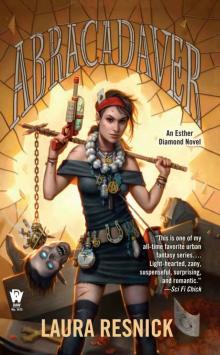 Abracadaver (Esther Diamond Novel)
Abracadaver (Esther Diamond Novel)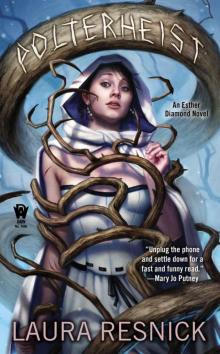 Polterheist: An Esther Diamond Novel
Polterheist: An Esther Diamond Novel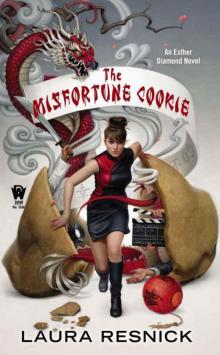 The Misfortune Cookie ed-6
The Misfortune Cookie ed-6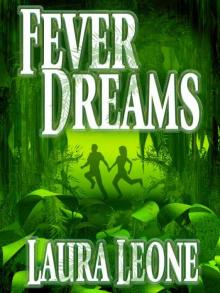 Fever Dreams
Fever Dreams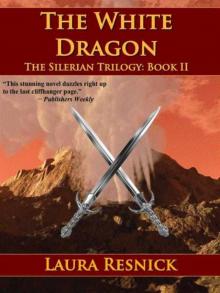 The White Dragon
The White Dragon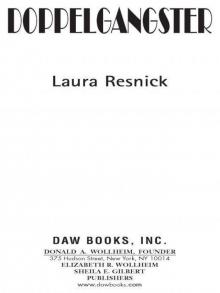 Dopplegangster
Dopplegangster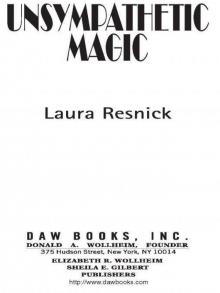 Unsympathetic Magic
Unsympathetic Magic